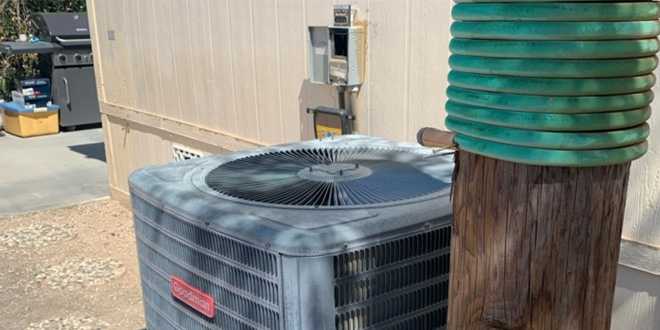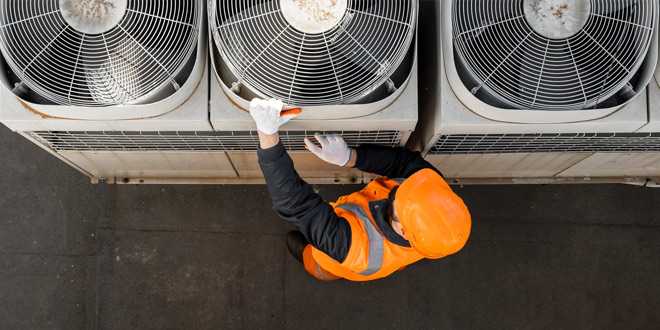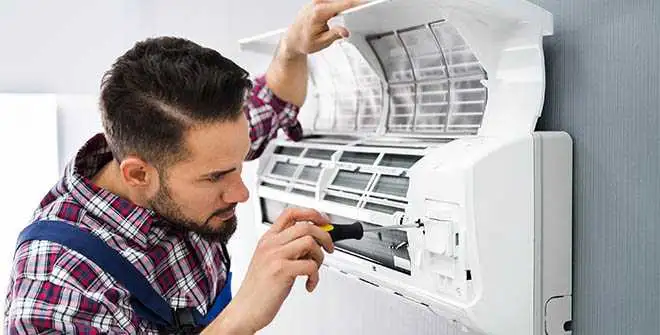
HVAC (Heating, Ventilation, and Air Conditioning) systems are essential components in maintaining indoor comfort, providing the necessary heating and cooling to keep our homes and businesses at optimal temperatures throughout the year. However, these systems can be significant consumers of energy, leading to high power bills and environmental impacts if not managed properly. Understanding the factors that influence HVAC power consumption and adopting energy-efficient practices can lead to substantial savings and a reduced carbon footprint.
Factors Affecting HVAC Power Consumption
Several factors influence the power consumption of HVAC systems. Understanding these factors can help you make informed decisions to optimize efficiency and reduce energy costs.
- System Size and Capacity The size and capacity of an HVAC system significantly impact its power consumption. An oversized system can cycle on and off frequently, leading to higher energy use, while an undersized system may run continuously, struggling to meet temperature demands. Ensuring your system is appropriately sized for your space is crucial for optimal efficiency.
- Seasonal Variations and Climate The amount of energy your HVAC system consumes varies with the seasons. During extreme temperatures, whether in the heat of summer or the chill of winter, HVAC systems work harder and use more energy to maintain indoor comfort. Your local climate plays a significant role in determining overall energy consumption patterns.
- Usage Patterns and Settings How often and how long you use your HVAC system affects its power consumption. Consistently running the system at very high or low temperatures can increase energy use. Utilizing programmable thermostats to adjust settings based on occupancy and time of day can help manage energy use more effectively.

Tips for Reducing HVAC Power Consumption
Reducing the power consumption of your HVAC system not only lowers your energy bills but also extends the life of the equipment and reduces your environmental footprint. Here are some practical tips to achieve greater energy efficiency:
- Regular Maintenance and Servicing Routine maintenance is crucial for keeping your HVAC system running efficiently. Regularly changing filters, cleaning coils, and checking refrigerant levels can prevent the system from working harder than necessary. Consider scheduling professional HVAC maintenance services to ensure your system operates at peak performance. Learn more about our AC maintenance services.
- Upgrading to Energy-Efficient Models If your HVAC system is outdated, upgrading to a newer, energy-efficient model can significantly reduce power consumption. Modern systems are designed to use less energy while providing the same or better performance. Look for units with high SEER (Seasonal Energy Efficiency Ratio) ratings for air conditioners and high AFUE (Annual Fuel Utilization Efficiency) ratings for furnaces. Explore our AC installation services.
- Proper Thermostat Settings Setting your thermostat to a comfortable yet efficient temperature can save energy. In the summer, aim for around 78°F when you’re home and higher when you’re away. In the winter, set it to around 68°F and lower when you’re not home. Utilizing a programmable or smart thermostat can automate these adjustments, optimizing energy use based on your schedule.
- Insulation and Sealing of Ducts Proper insulation and sealing of ducts prevent air leaks, ensuring that the conditioned air reaches its destination without loss. Poorly insulated or leaky ducts can lead to significant energy waste as the system works harder to compensate. Make sure your home is well-insulated, and your ducts are sealed to maximize efficiency.
Innovative Technologies for Energy Efficiency
Embracing new technologies can further enhance the efficiency of your HVAC system, leading to greater energy savings and improved performance. Here are some cutting-edge innovations to consider:
- Smart Thermostats and Home Automation Smart thermostats learn your schedule and preferences, adjusting temperatures automatically to optimize energy use. They can be controlled remotely via smartphone apps, allowing you to make adjustments on the go. Integration with home automation systems provides additional energy-saving opportunities, such as automatically lowering the thermostat when doors or windows are left open.
- Variable Speed Compressors and Fans Traditional HVAC systems operate at a single speed, either on or off. Variable-speed compressors and fans, however, can adjust their speed based on the current heating or cooling demand. This precise control reduces energy consumption and maintains more consistent indoor temperatures, enhancing comfort and efficiency.
- Energy Recovery Ventilation Systems Energy recovery ventilation (ERV) systems improve indoor air quality while minimizing energy loss. They capture energy from the exhausted air and transfer it to the incoming fresh air, reducing the workload on your HVAC system. ERVs are particularly beneficial in climates with extreme temperatures, where they can significantly reduce heating and cooling costs.
Implementing these innovative technologies can lead to substantial energy savings and make your HVAC system more efficient. Next, we’ll discuss the benefits of reducing HVAC power consumption.

Benefits of Reducing HVAC Power Consumption
Reducing the power consumption of your HVAC system offers numerous advantages that go beyond just saving on your energy bills. Here are some key benefits:
- Cost Savings Lowering your HVAC system’s power consumption directly translates to reduced energy bills. Efficient energy use means less money spent on heating and cooling, which can result in significant savings over time. Investing in energy-efficient practices and equipment can pay off in the long run.
- Environmental Impact Using less energy reduces your carbon footprint and helps combat climate change. HVAC systems are significant contributors to greenhouse gas emissions, and improving their efficiency contributes to a more sustainable future. By adopting energy-saving measures, you play a part in protecting the environment.
- Improved System Lifespan and Reliability Efficiently operating HVAC systems experience less wear and tear, which can extend their lifespan. Regular maintenance and energy-efficient upgrades reduce the strain on components, leading to fewer breakdowns and costly repairs. A well-maintained system is more reliable and performs better, ensuring consistent comfort in your home or business.
By understanding and managing your HVAC system’s power consumption, you can enjoy these benefits while maintaining a comfortable indoor environment.

Conclusion
In summary, understanding and managing HVAC system power consumption is essential for both cost savings and environmental responsibility. By considering factors like system size, seasonal variations, and usage patterns, you can make informed decisions to optimize your HVAC system’s efficiency. Implementing regular maintenance, upgrading to energy-efficient models, setting proper thermostat temperatures, and ensuring adequate insulation and sealing of ducts are practical steps to reduce energy use.
Embracing innovative technologies such as smart thermostats, variable speed compressors, and energy recovery ventilation systems can further enhance efficiency. These measures not only lower energy bills but also contribute to a greener planet and extend the life and reliability of your HVAC system.
Taking these steps towards energy efficiency can lead to a more comfortable, cost-effective, and environmentally friendly home or business. For professional assistance and expert advice on maintaining and upgrading your HVAC system, feel free to contact us at All Heart Heating & Cooling. We’re here to help you achieve the best in comfort and efficiency.




